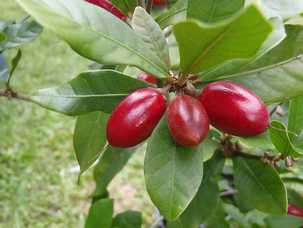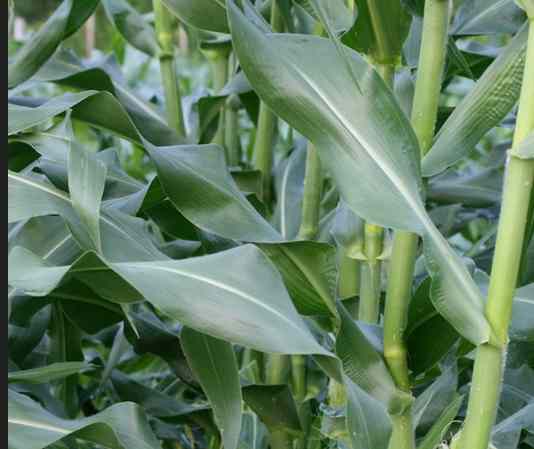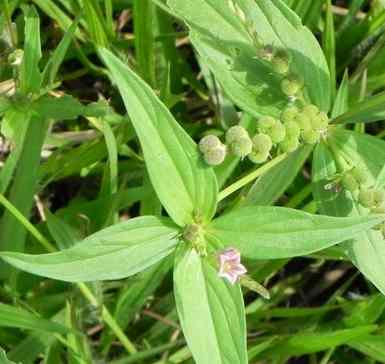
support@yorubalibrary.com
+2348073529208, 07038599574

Yoruba people will say "O dun bi Agbayun" (It's sweet like Agbayun). Agbayun is a rare but powerful medicinal plant known in Yoruba herbal traditions for its sweetening properties and health-boosting effects. This plant is very popular for its unique ability to make sour or bitter foods taste sweet after consumption. Beyond this trait, Agbayun has a valuable place in traditional medicine, where it is used to manage diabetes, aid digestion, and strengthen the immune system.
The fruit of the Agbayun plant is most commonly used, but its leaves also play an important role in traditional healing. The plant is native to West Africa and is commonly found in forest regions and home gardens where it is cultivated for its health value. Traditional healers use various parts of the plant in decoctions, infusions, and spiritual rituals to promote balance and wellness in the body.
This article outlines the physical features, healing potential, and cultural relevance of Agbayun within Yoruba medicine. If you're interested in how natural plants help control blood sugar and enhance well-being, Agbayun is a prime example of such a remedy.
Key Facts
Category: Leaf/Fruit
Botanical Name: Synsepalum dulcificum
Common Name: Nil
Yoruba name: Ewe/Eso Agbayun
Igbo Name: Nil
Hausa Name: Nil
Characteristics of Agbayun Plant
• Plant Structure:
Agbayun is a slow-growing shrub that reaches about 2–5 meters in height. It has a woody stem and many branches.
• Leaves:
The leaves are oblong, leathery, and glossy green with smooth edges. They grow in clusters and give the plant a rich, bushy appearance.
• Fruit:
Small, red berries about the size of a coffee bean. They are mildly sweet and contain a glycoprotein called miraculin.
• Flowers:
White to creamy flowers that grow in small clusters and bloom multiple times a year.
• Habitat:
Native to tropical West Africa, it prefers humid climates and shaded forest areas but can also be cultivated in gardens.
Want to treat common ailments such as Malaria, Cough, Measles, Typhoid, Pile etc naturally without spending much? Grab a copy of Authentic Herbal Solutions: 15 Common Ailments & Their Natural Cures. A practical eBook recommended for everyone regardless of tribe, religion or association. Order below or Download sample here
AUTHENTIC HERBAL SOLUTION #4KOne Yoruba proverb says "Bí olóde ò kú, òde rè kì í wu Gbégi". Do you know that Gbégi is actually a leaf/plant? Get Yoruba Proverbs on Plants and Herbs, which is a collection of Untold Wisdoms Hidden in Leaf and plants comprising their Life Applications & Moral Teachings. Order below or download sample here
YORUBA PROVERBS ON PLANTS #4KTraditional and Medicinal Uses in Yoruba Land
1. Blood Sugar Regulation
Agbayun is best known for its use in managing diabetes. The fruit alters taste perception, making sour things taste sweet, which can help people reduce sugar consumption naturally.
2. Appetite Stimulation
People recovering from illness or with loss of appetite use Agbayun to encourage eating by improving taste and food appeal.
3. Digestive Aid
The leaves and fruit are used in herbal mixtures to support healthy digestion, ease constipation, and reduce bloating.
4. Cough and Throat Relief
Infusions made from the leaf or soaked fruit help relieve dry cough, sore throat, and irritation in the chest.
5. Immune Booster
Agbayun is believed to strengthen the immune system, especially when taken regularly in herbal tonics.
6. Taste Restoration After Illness
In cases where people lose their sense of taste due to fever or illness, Agbayun is used to restore proper taste perception.
7. Spiritual Cleansing
In some parts of Yoruba land, the fruit is also used in spiritual rituals to purify the body and ward off negative influences.
Healing Properties of Agbayun
• Taste-Modifying – Changes sour and bitter tastes to sweet naturally
• Antioxidant-Rich – Protects cells from damage caused by free radicals
• Immune-Boosting – Supports the body’s defense system
• Anti-inflammatory – Reduces swelling and internal heat
• Anti-diabetic – Aids in managing blood sugar levels
• Digestive Support – Helps in smooth digestion and bowel movement
Conclusion
Agbayun (Synsepalum dulcificum) is a plant that offers both healing and nutritional value. While famous for its taste-altering effects, its role in Yoruba medicine extends far beyond sweetness. From managing diabetes to aiding digestion and improving overall wellness, Agbayun is a remedy in many traditional healing practices. Its continued use in herbal mixtures and as a home-grown plant shows its lasting relevance in Yoruba culture and health care.
Have you heard of our Yoruba Herb Dictionary? This contains names of Yoruba Leaf, Roots, Barks, Characteristics, Properties & Identification with HD Pictures. Order below or download sample here
A-Z HERBS & LEAF DICTIONARY #4K
Know more about the Yoruba traditional uses and he…

Learn about Ewe Aran, a potent Yoruba medicinal le…